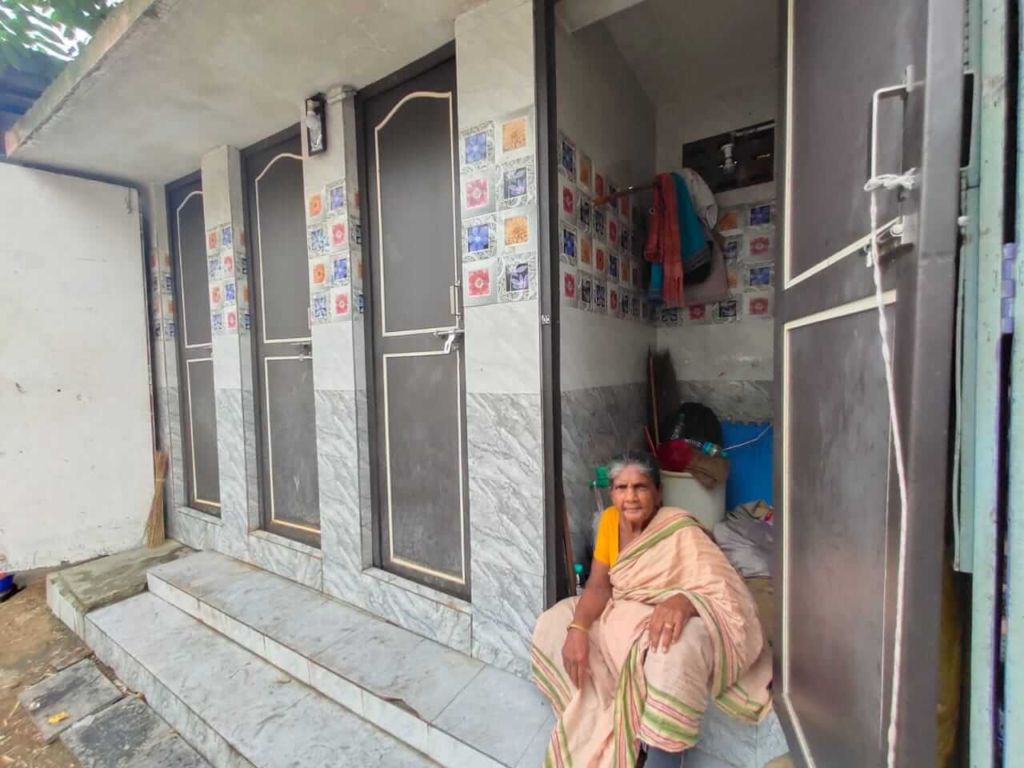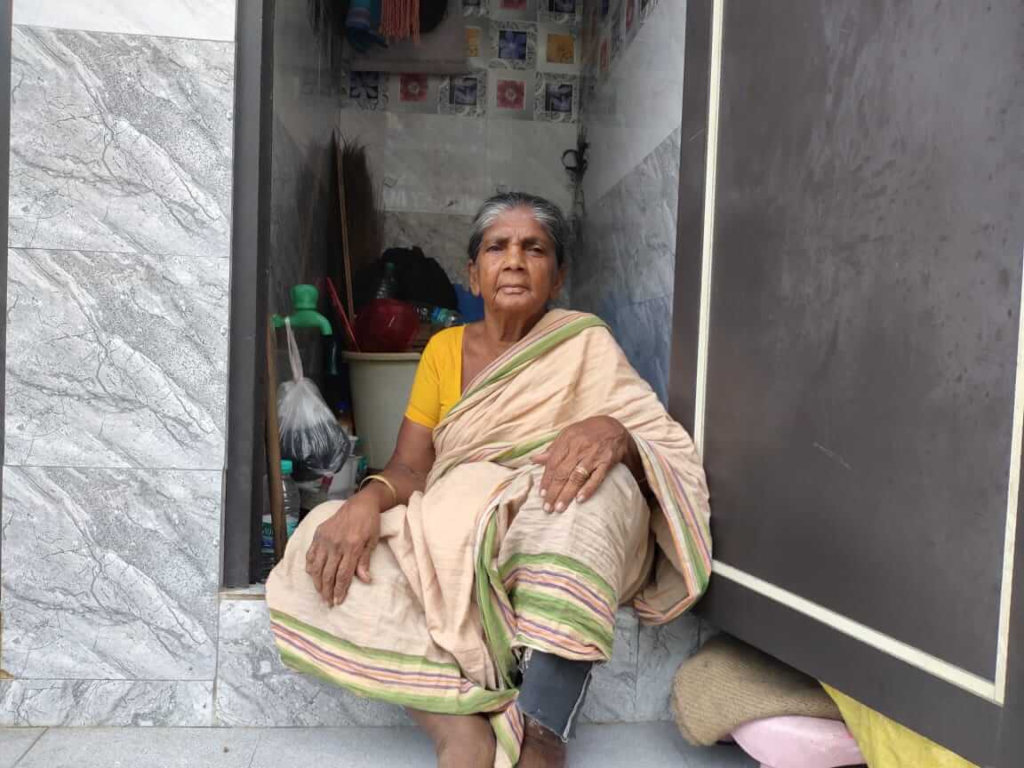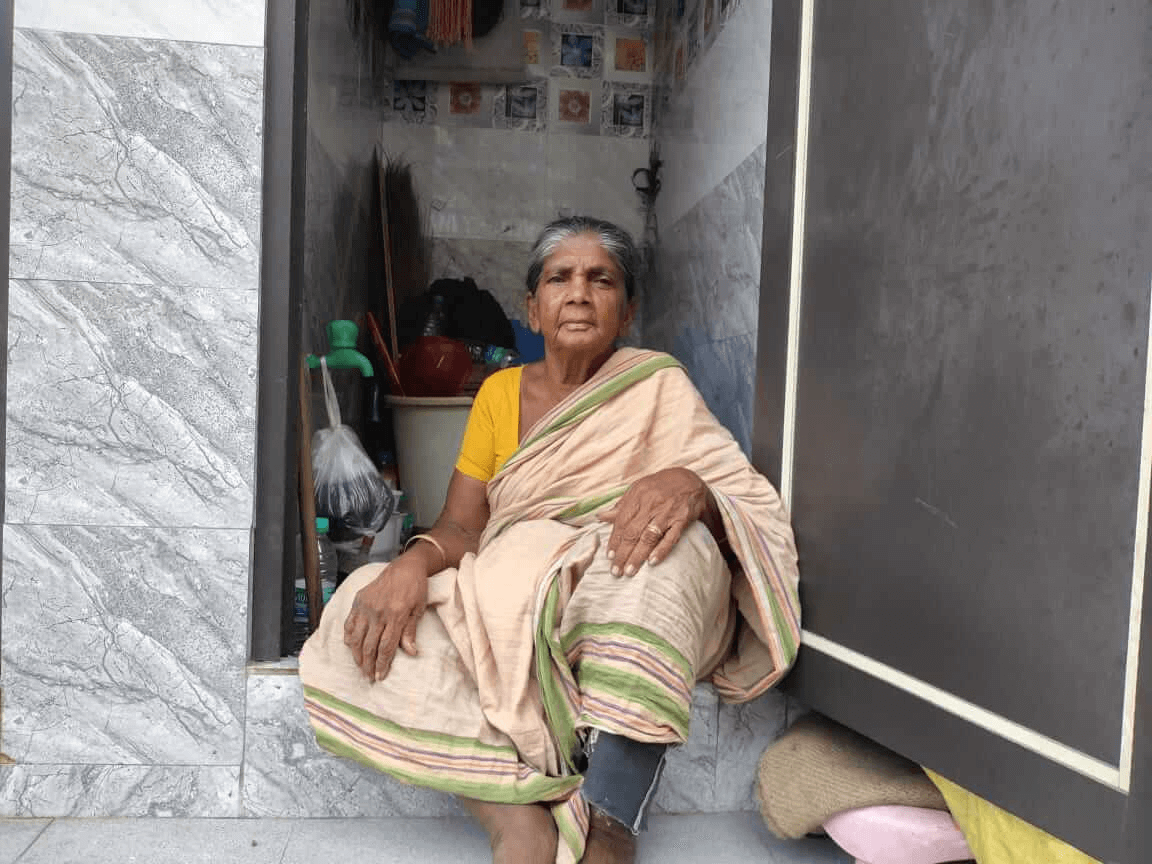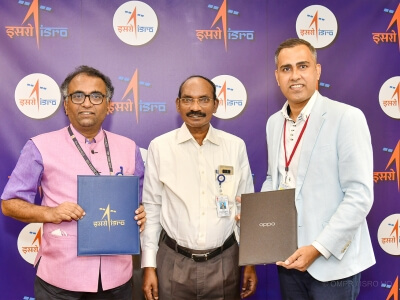Chennai: On the streets of Chennai’s Mylapore where devotees queue to seek blessings in the famous Kapaleeshwar Temple, a lone woman, 70-year-old Bibi Jaan, can be seen, managing the public toilets on the North Mada street of Mylapore.
Sitting on the steps of one of the toilets, draped in a saree with a faint smile on her face Bibi Jaan is in fact homeless.
With no home, she lives in one of the small vacant toilet rooms. She treats it as her house, where she keeps her necessities including a bucket, a few locks and keys, toilet cleaners, and a couple of her sarees hung on a rod. That toilet room is barely large enough for a person to squat.
She sits on the restroom staircase every day and manages the toilet block and at night, after the stores close, she sleeps on the ground opposite the public restroom.
Since it’s a paid toilet, she collects five rupees from the people who use the toilet. She ends up earning around Rs.200- Rs.300 daily from which she buys food from the hotels on the other end of the street.


Bibi Jaan was not always homeless
The onset of Covid-19, wreaked havoc on her life. Bibi jaan used to stay near Chennai airport on rental tenement from where she was thrown out as she wasn’t able to pay rent. Breaking down in tears, she disclosed that she has two children, one boy and a daughter. Despite having lovingly brought them up and educated them she was abandoned saying, ‘we don’t need an old lady who is good for nothing’. She said, “I feel so betrayed by them, I have always worked and thought for their wellbeing but they have just left me out on the streets.”
She laments, “I always wanted to educate my children and make them ‘Aiya’ (officers) but they didn’t study well despite how much I wanted them to do. Still, I ensured they studied till 12th standard.”

Never give up attitude
When asked about why she is working at toilets and not going to any old age home she said with a lot of pride and courage in her eyes, ” I am a woman of my own, I don’t want anyone’s favour. The money which I earn is mine, just mine. Nammal kastapetarum, ange engum pokakkutatu.” (We don’t need an old age home as long as we are willing to work).
She appeared to be extremely optimistic and assertive while sitting on that step and handling the people who were coming to use the restroom.
When questioned if she had received any assistance from the government during the lockdown, she stated that she lost her home and ration card during the 2015 floods and so could not avail of any assistance. During the lockdown, however, a few cops assisted her; she tried to earn money by working as a house cleaner in a few households, but due to her advanced age, she was unable to do it effectively. Left with no alternative, she began residing in the ‘toilet room.’
While recalling her husband’s demise in 2006 she was in tears wiping it with the edge of her saree she said, ” He was a very nice man who helped me in every situation of life but alcohol addiction killed him”.
After losing her husband in 2006 she somehow managed to work and educate her son and daughter till 12th standard, and even got her daughter married.
When asked what makes her happy after going through so much in life and being betrayed by her own children, she chuckled and said without a moment’s pause, “I go and get tasty food for myself, whenever I have that much money, I buy my favourite Dosa or Biryani, that makes me happy.”
Stoic about her life she said, “Life is unpredictable and now I am happy doing my own thing and whatever more or less I have.” Adding, “Udambil swasam irukkum vare inge taan ini ennume” (This is the place where I live as long as there is breath in my body; if something happens to me on this road some people will come and do my last rights, they won’t leave me as my own children did). She is unsentimental about her death.
There are about 40,000 homeless in Chennai and 90 per cent live in families with no access to shelter or a social security scheme, a study by the Madras School of Social Work (MSSW) and the Information and Resource Centre for the Deprived Urban Communities (IRCUDU) has found. It also found 90 per cent of them are Dalits and more than 50 per cent don’t have identity documents.














